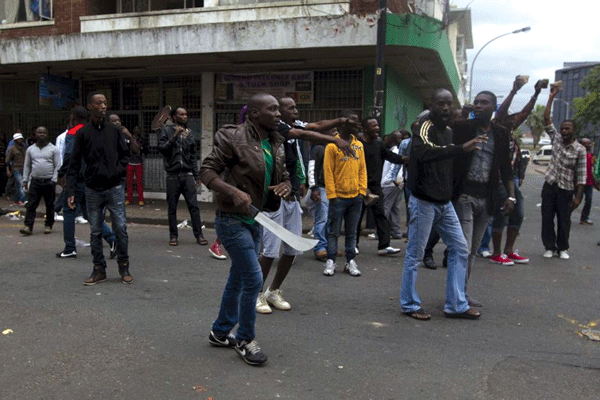
BETWEEN 1980 and the mid-1990s, Zimbabwe’s economy was a force to reckon with in Africa.
It was stable, with healthy growth rates that underpinned a massive industrial rebound.
Zimbabwe was the pride of its citizens.
One of the best signs of stability was the influx of nationals from neighbouring countries such as Mozambique and Malawi, who were lured by job opportunities in a country that was then a model of democracy, and an epitome of the growth in post-colonial Africa.
To their credit, Zimbabweans did not turn to xenophobic attacks to push out immigrants who competed with them for jobs and other opportunities.
Zimbabweans are a peaceful people.
It is one attribute that neighbouring countries may learn from Zimbabwe.
The domestic currency was stronger than the United States dollar in 1980, and it was at par with the British pound.
- Chamisa under fire over US$120K donation
- Mavhunga puts DeMbare into Chibuku quarterfinals
- Pension funds bet on Cabora Bassa oilfields
- Councils defy govt fire tender directive
Keep Reading
Growth was strong under the first and second five-year development plans, until the scourges of greedy, corruption and kleptocracy intoxicated those who sat in the isles of power.
Within 20 years, the economy had been looted, de-industrialisation had paralysed companies and the spectre of immense human suffering was highlighted by 500 billion percent inflation in December 2008 — the worst such figure recorded in African history.
The Zimbabwe dollar crashed on what became known as the Black Friday in November 1997 and the economy has known no respite 25 years on.
At some point in 2008, it cost commuters $3,5 trillion for a single trip to the city centre in Harare — which was equivalent to US$0,50.
The result was an exodus of over five million Zimbabweans to the region and overseas, mostly to South Africa, seeking refuge from the blistering crisis instigated by their government.
Now, when mismanagement becomes so bad that it forces five million citizens to flee, the pressure they exert on receiving countries is unbearable.
They compete for food, sanitary facilities, access to the best healthcare and for jobs — which has been the most contentious issue in South Africa.
Government lost an opportunity to ensure Zimbabwe retains the pride of Africa tag.
By destroying an economy that they inherited from the colonial government intact, politicians have ruined many people’s lives.
If Zimbabwean authorities had kept the economy intact, locals would not be at the mess of xenophobic attacks today.
But the sheer numbers of Zimbabwean economic refugees in South Africa has sparked the outrage.
And the only way to remedy this is to address the economic crisis in order to create opportunities for every Zimbabwean on home soil.
It is an embarrassment for millions of Zimbabweans to solely rely on another economy as if theirs is a barren land.
Zimbabwean authorities must wake up.











